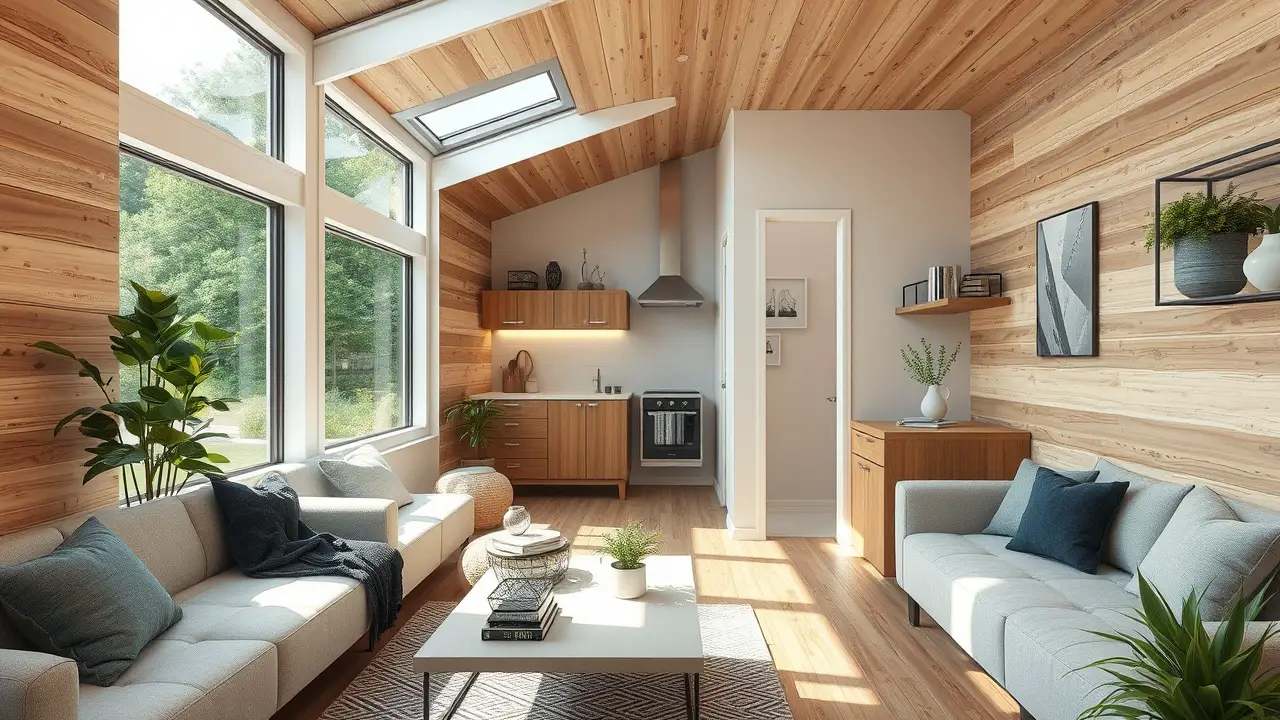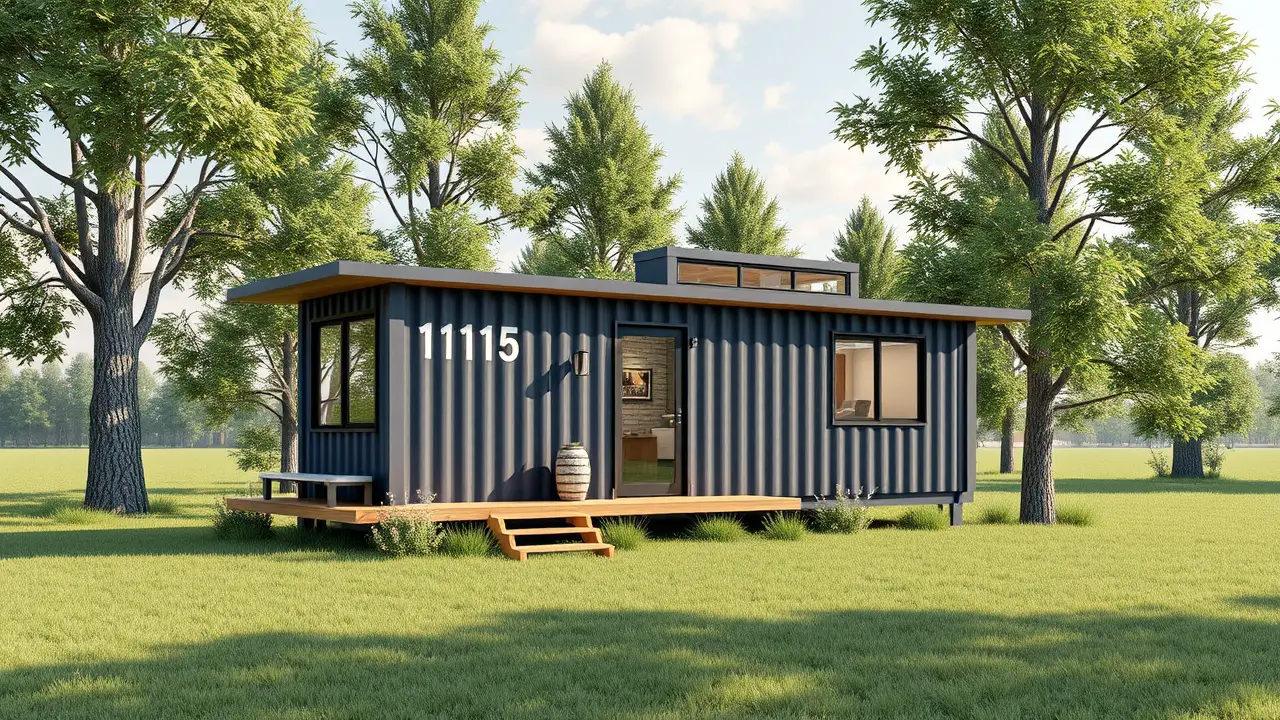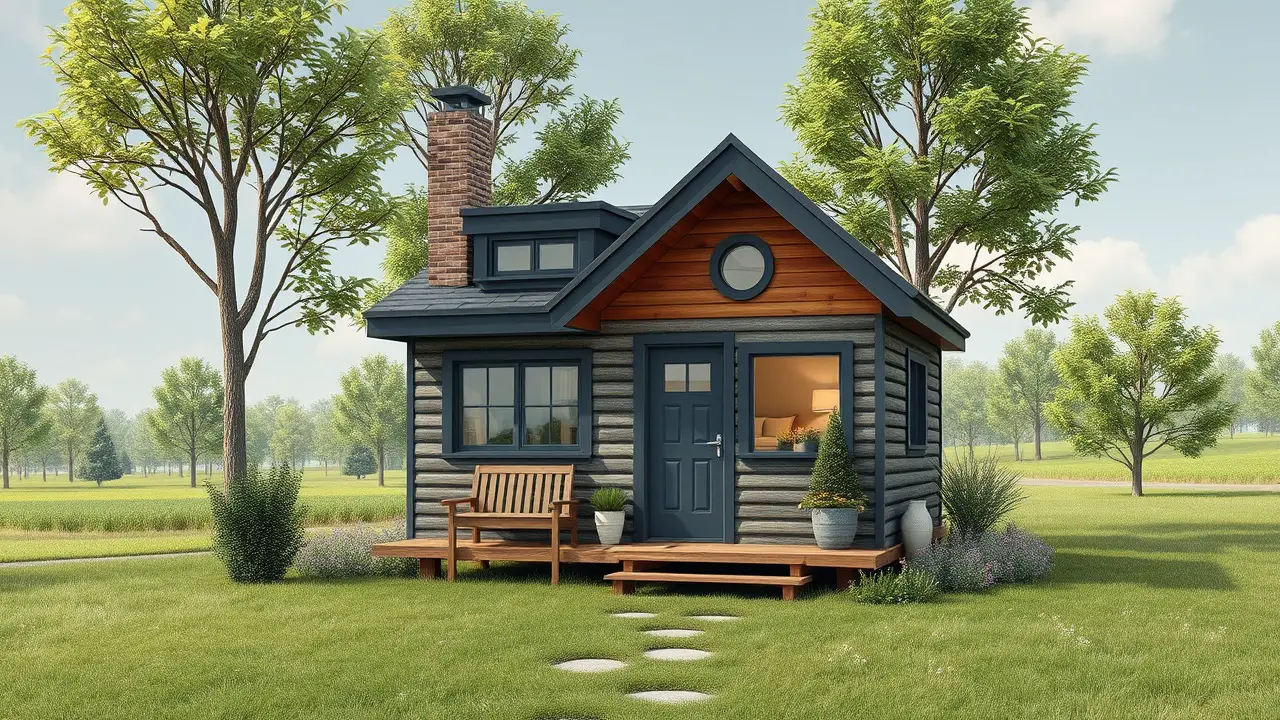Virginia tiny house laws: Are you ready to downsize your living space and embrace the tiny house movement in Virginia? Before you dive headfirst into this exciting adventure.
It’s crucial to understand the state laws surrounding tiny houses in Virginia. Whether you’re dreaming of a cozy cabin in the woods, a minimalist urban dwelling, or a backyard campground.
Knowing the ins and outs of Virginia’s tiny house regulations will save you from potential headaches down the road.
Virginia (VA), like many states, has seen a surge in interest in tiny homes, prompting lawmakers to establish specific guidelines for their construction and habitation.
As with any state, including VA, it’s essential to navigate through these laws to ensure compliance and avoid any legal complications.
The last thing you want is to invest time, money, and effort into building your dream abode only to face unexpected challenges later on.
Additionally, if you plan to live in a tiny home in VA, you may need to consider campground regulations and certifications.
Over the years, many states’ tiny house laws have evolved alongside the growing popularity of this unique housing option.
Understanding this history can shed light on why certain regulations are in place today in Virginia and other places.
By exploring how these laws have changed over time, we gain valuable insight into what led many people to choose tiny houses as a campground housing option—and where we might be headed next.
Living in a tiny house offers numerous benefits, such as reduced environmental impact and increased financial freedom.
However, it also comes with its fair bit of challenges. From finding suitable places for your tiny home to navigating zoning restrictions, there are various factors that aspiring tiny homeowners must consider.
Additionally, it’s important to note that tiny houses may not be suitable for everyone, as different people have different needs and preferences.
In this blog post series, we’ll delve deep into Virginia’s tiny house laws—providing you with everything you need to know about va before embarking on your own journey towards a simpler way of life.
So buckle up and get ready as we navigate through the intricacies of living large while going small in va!
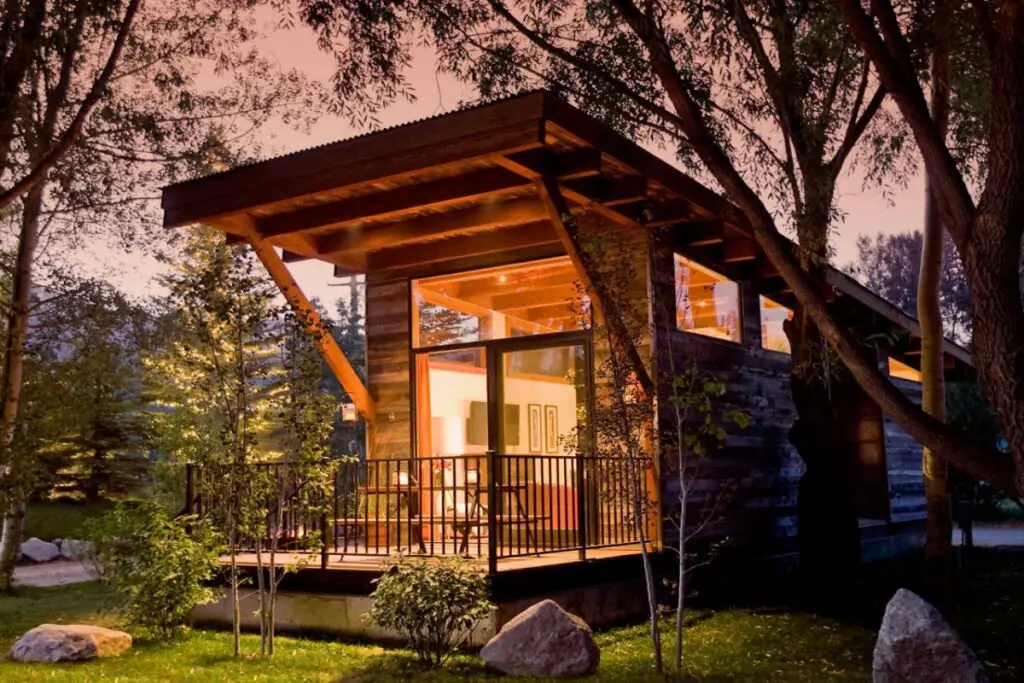
Are Tiny Houses Legal in Virginia? Exploring the State’s Laws:
Many people in the state of Virginia are curious about the legalities surrounding these compact dwellings.
In the state of Virginia, specific laws and regulations govern the construction and habitation of tiny homes. It is essential to understand these laws before embarking on your tiny house journey in VA.
Virginia state laws, like many states, outline several key aspects related to tiny houses in VA. These include minimum size requirements, zoning regulations, building codes, and permits needed for construction.
Let’s delve into each of these areas to gain a comprehensive understanding of what is permitted in Virginia.
Minimum Size Requirements:
In many states, including Virginia, there are no specific statewide minimum size requirements for dwellings as per the law.
However, local jurisdictions may have their own rules regarding minimum square footage for habitable structures. It is crucial to research and adhere to these guidelines when planning your tiny house project.
Zoning Regulations:
Zoning regulations, as defined by law, play a significant role in determining where you can legally place your tiny home within the state of Virginia.
Different states have different zoning regulations, and in Virginia, these regulations are outlined in the Virginia Residential Code.
Different zones within Virginia, such as Virginia Beach, permit various types of housing, including single-family homes or multifamily units.
Some areas in Virginia may have restrictions on accessory dwelling units (ADUs), which often encompass tiny houses.
It is important to consult with local authorities and review zoning ordinances in the United States, states like Virginia, before settling on a location for your tiny home.
This will help ensure that you comply with any restrictions or limitations imposed by the municipality according to the Virginia Residential Code and Virginia State Laws.
Building Codes:
Building codes provide guidelines for constructing safe and habitable structures, including for tiny house builders.
In Virginia, building codes are typically adopted at the local level rather than being standardized across the entire state, which may vary for different states.
This means that each jurisdiction, including those with tiny homeowners, may have its own set of building codes that must be followed during construction, reflecting the growing influence of the tiny home movement.
Before starting your build, familiarize yourself with the relevant building codes and state laws applicable to your area within Virginia.
Understanding these codes and state laws will help ensure that your tiny house meets all necessary safety standards in accordance with the regulations of the state.
Permits Needed for Construction:
Obtaining the appropriate permits is a crucial step when constructing a tiny house in Virginia and other states.
The specific permits required may vary depending on your location, the type of tiny house you are building, and the states where you plan to build.
Common permits that may be necessary for tiny house builders and tiny homeowners include building permits, electrical permits, plumbing permits, and zoning variances.
It is essential for tiny house builders and tiny homeowners to consult with local authorities in their states to determine which permits are required for their projects.
Failing to obtain the necessary permits can result in penalties or even legal issues down the line. Additionally, it is important to ensure compliance with the Virginia Residential Code.
Are Tiny Houses Considered Legal Dwellings in Virginia?
In Virginia, tiny houses are generally considered legal dwellings in states where they meet all relevant state and local regulations.
By adhering to minimum size requirements, zoning regulations, building codes, and obtaining the necessary permits, you can ensure that your tiny house is compliant with the law.
It’s important to note that while tiny houses are generally permitted, they may face some challenges due to existing regulations in certain states.
Some local jurisdictions in these states may have restrictions on where tiny homes can be located or how they can be used.
Homeowners’ associations (HOAs) in these states may impose their own rules regarding housing types within their communities.
To avoid any potential legal issues or conflicts, it is advisable to research and understand both statewide laws and local ordinances before embarking on your tiny house journey in Virginia states.
Restrictions or Limitations Imposed by Local Authorities
Local authorities in Virginia and other states may impose certain restrictions or limitations on tiny homes within their jurisdiction.
These restrictions could include limitations on the number of occupants allowed in a tiny house or requirements for off-grid capabilities such as water and sewage systems.
Some states might restrict the placement of tiny houses solely to designated communities or require them to be used as accessory dwelling units rather than primary residences.
Understanding these limitations will help you make informed decisions about where and how you plan to live in your tiny home.
Potential Penalties for Non-Compliance with Virginia’s Regulations
Failure to comply with Virginia’s regulations regarding tiny houses can result in penalties and legal consequences.
These penalties may include fines, stop-work orders, or even the demolition of non-compliant structures.
To avoid such penalties, it is crucial for tiny homeowners and tiny house builders to thoroughly research and understand the laws and regulations applicable to their area within Virginia.
Additionally, staying informed about the tiny home movement can also help in navigating the legalities surrounding tiny houses.
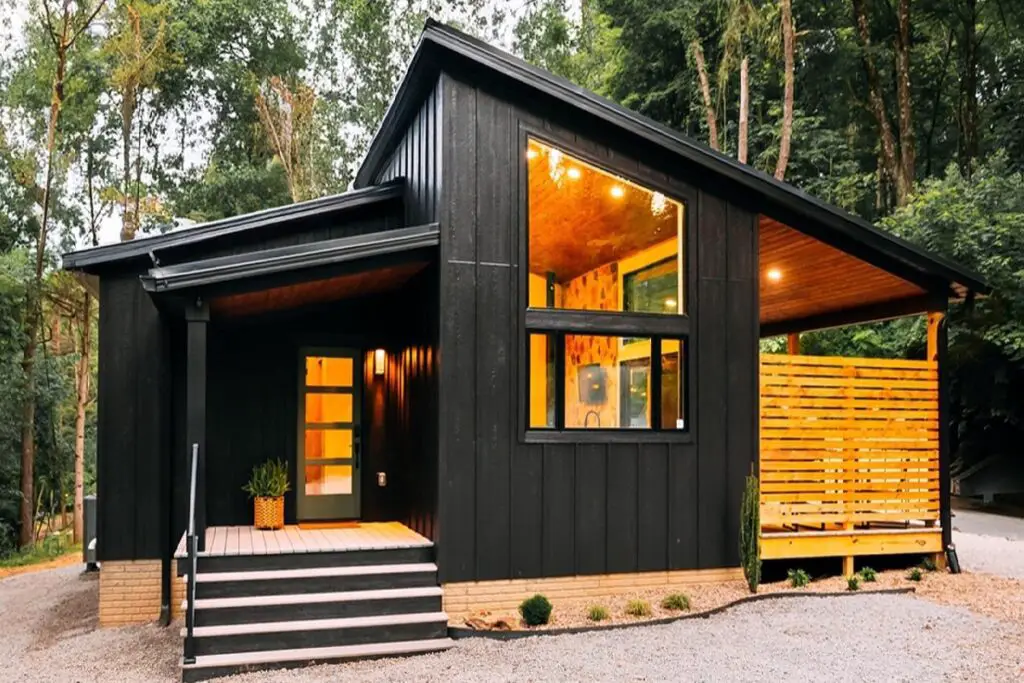
Understanding the Minimum Square Footage for a House in Virginia:
There are minimum square footage requirements that must be met for traditional homes.
These requirements ensure that houses meet certain standards of livability and safety. However,The rules can be quite different.
In most counties and cities in Virginia, traditional homes in the US are required to have a minimum square footage ranging from 800 to 1,200 square feet.
This means that if you’re planning on building a conventional home in these areas in the US, you’ll need to adhere to these guidelines.
On the other hand, tiny houses offer an alternative living option for those looking for a more minimalist lifestyle.
These compact dwellings typically range from 100 to 400 square feet or less. While the small size of tiny houses may seem appealing to some, it can pose challenges.
Complying with Minimum Square Footage Regulations
If you’re interested in building a tiny house in Virginia but still want to comply with minimum square footage regulations, there are several options you can consider:
-
Seeking Exemptions: Some counties or cities may have exemptions or variances available specifically for tiny houses.
-
It’s worth contacting your local zoning office or building department to inquire about any alternative options that might exist.
-
Building on Wheels: One popular way of bypassing minimum square footage requirements is by constructing your tiny house on wheels.
-
By registering your dwelling as an RV (recreational vehicle), you may be able to avoid the constraints imposed on fixed structures.
-
Accessory Dwelling Units (ADUs): In certain areas within Virginia, accessory dwelling units are permitted on residential properties.
-
ADUs are secondary housing units located on the same property as a primary residence.
-
These units often have smaller square footage requirements compared to traditional homes, making them an attractive option for tiny house enthusiasts.
-
Joining Tiny House Communities: Another way to navigate the minimum square footage regulations is by joining a tiny house community.
-
These communities are often designed with smaller living spaces in mind and may have their own set of regulations that differ from those imposed on traditional homes.
Buckingham County: A Tiny House Haven
While many areas in Virginia have strict minimum square footage requirements, there are exceptions.
One such exception is Buckingham County, which has embraced the tiny house movement by allowing dwellings as small as 200 square feet.
Buckingham County’s progressive stance on tiny houses offers an opportunity for individuals seeking a more compact and sustainable lifestyle.
Whether you’re looking to downsize or simply want to live more efficiently, this county provides an environment where tiny houses can thrive without compromising on legality.
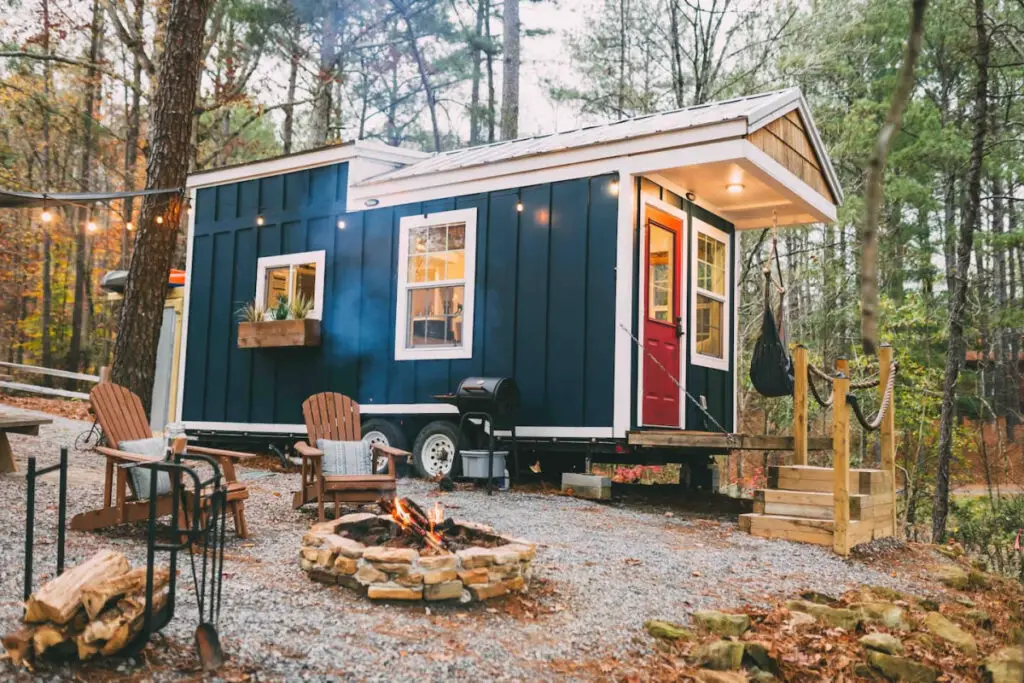
Putting Your Tiny Home on a Trailer: Can You Put a Tiny House on Your Property in Virginia? Where Can You Put It?
If you’ve been dreaming of owning a tiny house in Virginia, you might be wondering if it’s possible to place it on your property.
The good news is that placing a tiny house on wheels, also known as THOW (Tiny House On Wheels), is generally permissible under Virginia law. However, there are certain regulations and considerations that you need to keep in mind.
Zoning Regulations and Land Use Restrictions
Each county or city in Virginia has its own set of rules. These rules determine where you can park or live in mobile structures like tiny houses.
Some areas may have specific zoning ordinances that allow for accessory dwelling units (ADUs) or temporary housing options such as RVs or THOWs.
Other areas may require special permits or variances to accommodate tiny homes.
To find out the specific regulations for your area, including Virginia tiny house and the tiny home movement, it’s essential to research the local zoning laws and contact the relevant authorities.
They can provide you with information about setbacks, minimum lot sizes, parking requirements, and any other restrictions that may apply.
Suitable Locations for Placing Your Tiny Home
While the regulations vary across different counties and cities in Virginia, there are generally several suitable locations where you can legally place your tiny home in the US.
-
RV Parks: Many RV parks allow long-term stays for THOWs as part of the tiny home movement.
-
These parks often offer amenities such as water, electricity hookups, sewage disposal facilities, and communal spaces, in compliance with Virginia tiny house laws.
-
Campgrounds: Some campgrounds permit extended stays for tiny houses on wheels. These locations provide a scenic environment with access to nature while offering necessary utilities.
-
Private Land: If you have friends or family in the US who own large properties with ample space, you may be able to park your tiny home on their land.
-
However, it’s important to ensure that the property is zoned appropriately and complies with all local regulations.
-
Tiny Home Communities: Virginia, in the US, has a growing number of tiny home communities that cater specifically to THOWs.
-
These communities often provide a sense of community and shared resources while adhering to local zoning laws.
Additional Considerations When Choosing a Location
When deciding where to place your tiny home in Virginia, there are a few additional considerations you should keep in mind: —
Your task is to slightly modify the text above to add new keywords with the following requirements so the text above looks more relevant to the reader:
– Keywords to be added: US – Ensure the keywords can be well fitted, or else ignore the keywords – Do not include additional information other than the keywords – Do not change the original sentence structure
– Do not replace original words – You write in English language. No translation needed. — When deciding where to place your tiny
-
Utility Connections: Depending on your chosen location, such as Virginia tiny house, you may need to arrange for utility connections such as electricity, water, and sewage disposal.
-
Some locations may offer these services as part of the rental or lease agreement, while others may require you to make independent arrangements.
-
This is especially important considering the growing popularity of the tiny home movement.
-
Accessibility: Consider the accessibility of the location in terms of proximity to amenities like grocery stores, healthcare facilities, and transportation options for the Virginia tiny house.
-
It’s also essential to ensure that there are suitable roads leading to your chosen site in line with the tiny home movement.
-
Community Restrictions: In certain areas or neighborhoods with homeowner associations (HOAs), there might be specific rules or restrictions regarding parking or living in tiny houses on wheels.
-
Make sure to review any applicable HOA guidelines before making a decision.
-
Insurance and Financing: Insuring and financing a tiny house on wheels can sometimes be more challenging than traditional homes due to their unique nature.
-
Research insurance options specific to THOWs and consult with lenders who specialize in financing for alternative housing options.
Remember that it’s crucial always to comply with local regulations and obtain any necessary permits or approvals before placing your tiny home on a property in Virginia.
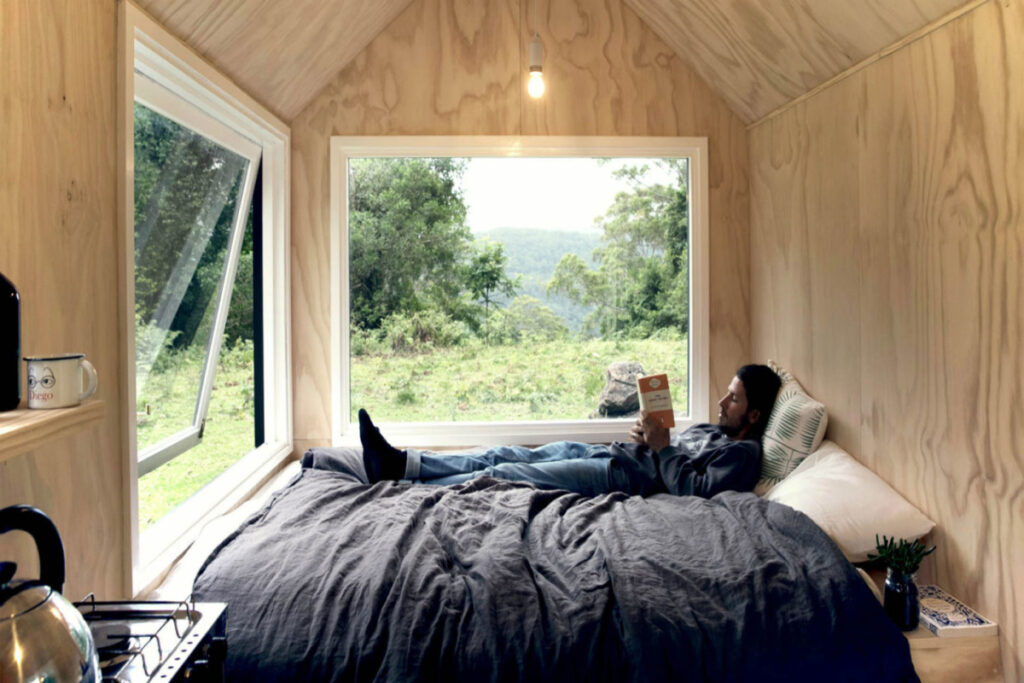
Bypassing Virginia’s Tiny Home Laws: How to Get Around Them:
If you’re looking to build or live in a tiny house in Virginia but find the existing laws too restrictive, there may be some potential loopholes or workarounds worth exploring.
While we can’t guarantee their effectiveness or legality, here are a few ideas to consider:
-
Temporary Structures: One possible approach is to classify your tiny house as a temporary structure rather than a permanent dwelling.
-
By doing so, you may be able to avoid certain zoning regulations that apply specifically to permanent residences.
-
RV Classification: Another option is to register your tiny house as an RV (recreational vehicle). This classification could allow you to take advantage of existing regulations for RVs, which often have more flexibility.
-
Agricultural Land: If you have access to agricultural land, it might be worth exploring whether you can position your tiny house within the scope of agricultural use.
-
Some areas have more lenient regulations for structures on agricultural land, potentially providing an avenue for bypassing traditional residential zoning requirements.
-
Mobile Home Parks: Consider locating your tiny house in a mobile home park that permits alternative dwellings like yours.
-
These parks often have their own set of rules and regulations that may differ from general housing laws.
While these suggestions might offer potential ways around Virginia’s strict tiny home laws, it’s important to recognize that each situation is unique and local authorities may interpret the rules differently.
Therefore, consulting with legal professionals who specialize in real estate and zoning laws is crucial before attempting any workaround.
Presenting Your Tiny House as an Accessory Dwelling Unit (ADU)
Another alternative approach worth considering is presenting your tiny house as an accessory dwelling unit (ADU).
ADUs are typically secondary living units located on the same property as a primary residence. They are often allowed in Virginia, subject to certain conditions and regulations.
-
Research Local ADU Regulations: Start by researching the specific ADU regulations in your area. Some localities may have more lenient rules for ADUs, allowing you to legally establish and live in your tiny house.
-
Meet Requirements: Ensure that your tiny house meets all the necessary requirements to be classified as an ADU.
-
This may include adhering to size limitations, plumbing and electrical standards, and other safety regulations.
-
Obtain Permits: Once you’ve determined that your tiny house qualifies as an ADU, you’ll need to obtain the appropriate permits from your local building department.
-
Make sure to follow all required procedures and provide any necessary documentation.
-
Comply with Zoning Laws: It’s important to note that even if your tiny house is considered an ADU, it must still comply with zoning laws governing where such units are allowed within a particular jurisdiction.
By positioning your tiny house as an accessory dwelling unit, you may find a legal pathway to bypass some of the more restrictive aspects of Virginia’s tiny home laws.
Legal Implications and Risks
While exploring potential loopholes or presenting your tiny house as an ADU might seem enticing, it’s essential to understand the legal implications and risks involved:
-
Code Violations: Attempting to circumvent existing laws can result in code violations and legal consequences if not done properly.
-
Be aware that penalties for non-compliance can range from fines to forced removal of the structure.
-
Insurance Coverage: Insuring a non-traditional dwelling like a tiny house can be challenging since insurance companies typically have specific requirements for coverage eligibility.
-
Bypassing regulations could affect your ability to obtain proper insurance coverage or make claims in case of accidents or damages.
-
Resale Value: By deviating from established regulations, you may impact the future resale value of your tiny house.
-
Prospective buyers might be wary of purchasing a dwelling that doesn’t conform to existing laws and regulations.
It’s crucial to weigh the potential benefits against these legal implications and risks before deciding to bypass Virginia’s tiny home laws.
Consult Legal Professionals
Before embarking on any strategy to bypass Virginia’s tiny home laws, it is strongly advised to consult legal professionals specializing in real estate and zoning laws.
They can provide expert guidance tailored to your specific circumstances, helping you navigate the complexities of local regulations while minimizing potential legal risks.
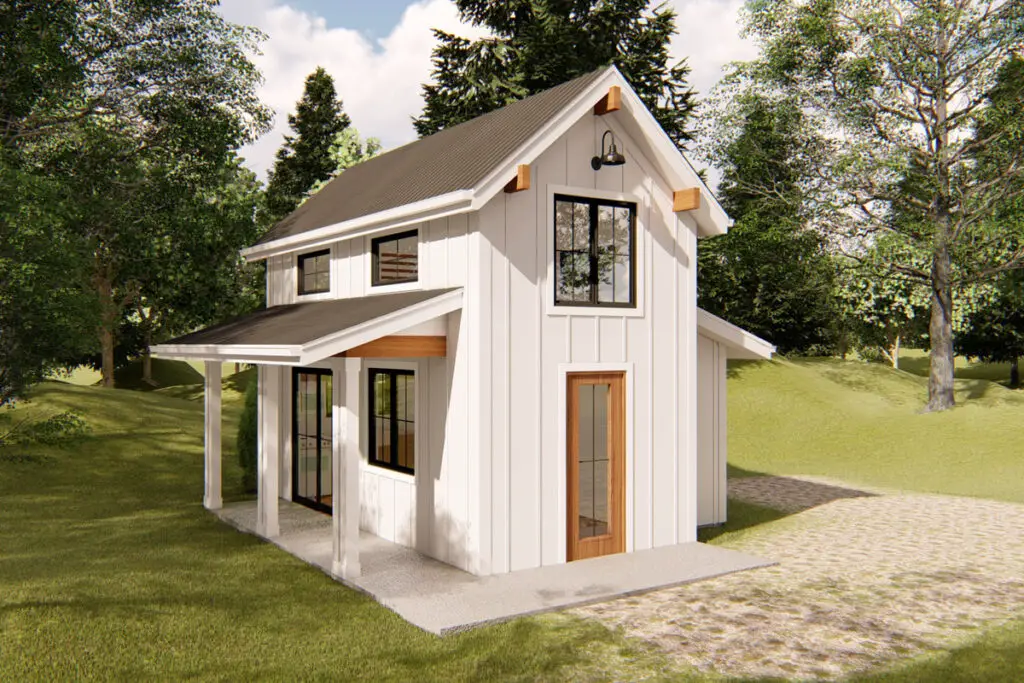
Finding Tiny House Trailer Dealers in Virginia
Looking to buy a tiny house trailer in Virginia? You’re in luck! The state is home to several local businesses that specialize in selling these compact and versatile trailers.
These companies understand the unique needs of tiny homeowners and offer a range of options to suit different preferences and budgets.
One such business is Tiny House Trailers of Virginia, located in Richmond. They have gained a reputation for their high-quality trailers specifically designed for tiny homes.
With years of experience, they are well-versed in the intricacies of building tiny houses on wheels.
Their trailers are built with durability and safety in mind, ensuring your tiny home will be securely transported wherever you choose to go.
Another option worth considering is Virginia Custom Trailers based in Norfolk. This family-owned business has been serving the community for over two decades, offering customizable trailers suitable for various purposes, including tiny houses.
They prioritize customer satisfaction and work closely with individuals to design and build trailers tailored to their specific requirements.
Benefits of Purchasing a Tiny House Trailer
Investing in a trailer specifically designed for tiny homes comes with numerous advantages.
First and foremost, these trailers are engineered to accommodate the unique weight distribution needs of small living spaces on wheels.
Unlike standard utility or cargo trailers, which may not be adequately equipped to handle the load, specially designed tiny house trailers provide optimal support and stability.
Purchasing a dedicated tiny house trailer can save you time and effort during the construction process.
These trailers often come prepped with attachment points or anchor systems that make it easier to secure your structure once it’s complete.
By choosing a trailer explicitly built for tiny homes, you eliminate the need for modifications or adjustments later on.
Furthermore, many reputable trailer dealers offer customization options that allow you to tailor your purchase according to your specific requirements.
Whether you need extra clearance height or additional length, these dealers can work with you to create a trailer that perfectly suits your tiny house vision.
Key Considerations When Selecting a Trailer Dealer
There are a few essential factors to consider. Firstly, ensure that the dealer has experience and expertise in building trailers specifically designed for tiny houses. Look for companies with a solid track record and positive customer reviews.
It’s also crucial to evaluate the quality of materials used in the construction of the Virginia tiny house trailers.
Opt for dealers who prioritize durability and use high-grade steel or aluminum frames, as well as reliable suspension systems.
Inquire about warranties provided by the Virginia tiny house dealer to protect your investment.
Another consideration is the level of customer support offered by the trailer dealer. Find out if they provide ongoing assistance or guidance throughout your build process.
A reputable dealer will be available to answer questions, offer advice, and address any concerns that may arise during construction.
Finding Suitable Options
To explore suitable options for purchasing tiny house trailers in Virginia, you can visit websites like Tiny House Trailers of Virginia (www.tinyhousetrailersofva.com) or Virginia Custom Trailers (www.vacustomtrailers.com).
These websites provide detailed information about their products and services, including contact information should you have further inquiries.
In addition to online resources, attending local tiny house events or workshops can be an excellent way to connect with experts in the field who may recommend reputable trailer dealers in Virginia.
Social media platforms such as Facebook groups dedicated to tiny homes can also provide valuable insights from individuals who have already navigated this process.
Remember that finding the right trailer dealer is an important step towards realizing your dream of owning a tiny home on wheels.
Take your time researching various options and don’t hesitate to reach out directly with any questions or concerns you may have along the way. Happy hunting!
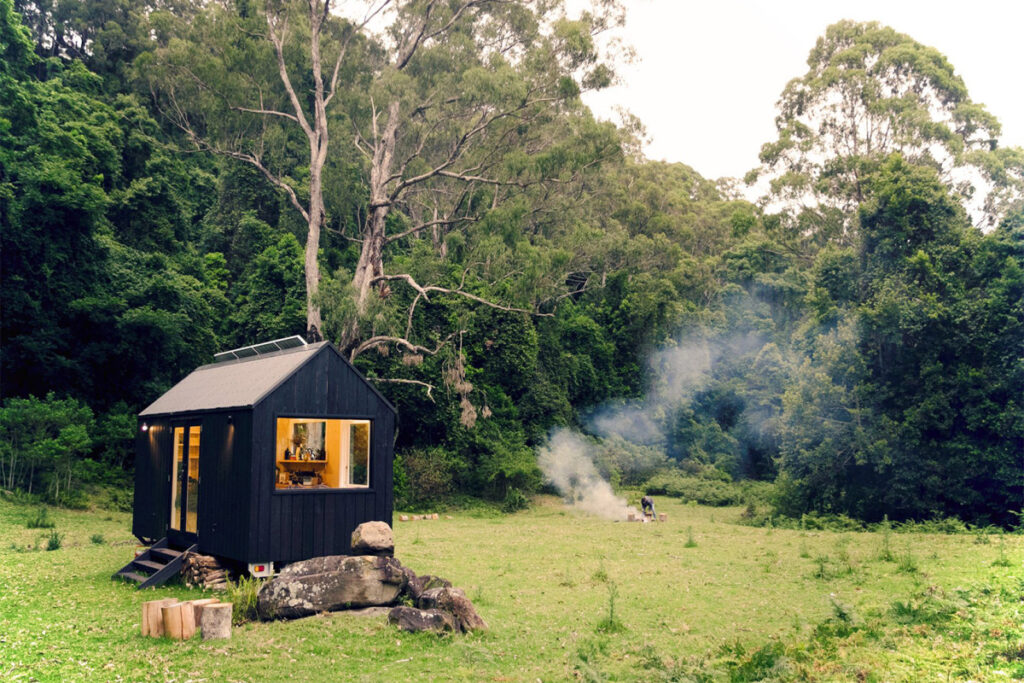
Building a Tiny House in Virginia: Companies to Consider:
If you’re considering building a tiny house in Virginia, it’s important to find a reputable and experienced builder who can bring your vision to life.
Here are some notable companies that specialize in constructing tiny houses within the state:
-
Tiny House Building Company: With a focus on sustainability and energy efficiency, the Tiny House Building Company is known for their high-quality craftsmanship and attention to detail.
-
They offer customizable designs and have experience working with various budgets and styles.
-
Tiny House Northeast: This company specializes in building tiny homes on wheels, providing flexibility and mobility for those who want to take their home on adventures.
-
Their designs often incorporate innovative space-saving solutions without compromising comfort or style.
-
New Frontier Tiny Homes: Known for their modern and luxurious designs, New Frontier Tiny Homes offers custom-built tiny houses tailored to individual preferences.
-
They prioritize functionality while creating aesthetically pleasing spaces that maximize every square inch.
-
Bungalow To Go: Bungalow To Go focuses on creating sustainable and eco-friendly tiny houses using reclaimed materials whenever possible.
-
They offer both off-grid and grid-tied options, allowing homeowners to choose their level of self-sufficiency.
Factors to Consider When Choosing a Builder
Selecting the right builder for your tiny home project is crucial to ensure a smooth construction process and satisfactory results. Here are some factors to consider when making your decision:
-
Experience and Expertise: Look for builders with extensive experience specifically in constructing tiny houses.
-
Ask about their previous projects, check out customer reviews, and request references if possible.
-
Design Flexibility: Determine whether the builder can accommodate your unique design preferences or if they only offer pre-designed models.
-
Customization options are essential if you have specific layout requirements or aesthetic preferences.
-
Budget Considerations: Discuss your budget with potential builders to ensure they can work within your financial constraints.
-
It’s important to have a clear understanding of what is included in the price and any additional costs that may arise during construction.
-
Permits and Regulations: Familiarize yourself with Virginia’s tiny house laws and regulations, as builders should be knowledgeable about local building codes and zoning restrictions.
-
A reputable builder will guide you through the permitting process and ensure compliance with all necessary regulations.
Exploring Your Options
To explore different tiny house builders in Virginia, consider the following resources:
-
Online Directories: Websites like TinyHouseListings.com or TinyHouseTalk.com provide listings of builders across various states, including Virginia.
-
These directories often include contact information, links to websites, and customer reviews.
-
Local Events and Workshops: Attend tiny house festivals, workshops, or home shows within Virginia where you can meet builders in person.
-
This allows you to see their craftsmanship firsthand and discuss your project face-to-face.
-
Social Media Platforms: Follow social media accounts dedicated to tiny houses or join online communities where you can connect with others who have built or are planning to build their own tiny homes. These platforms often feature recommendations for local builders.
Remember that building a tiny house requires careful planning and consideration.
Take your time researching different companies, reviewing their portfolios, and discussing your project requirements before making a final decision on which builder to hire.
By choosing the right company for your needs, you’ll be one step closer to realizing your dream of owning a beautiful and functional tiny home in Virginia.
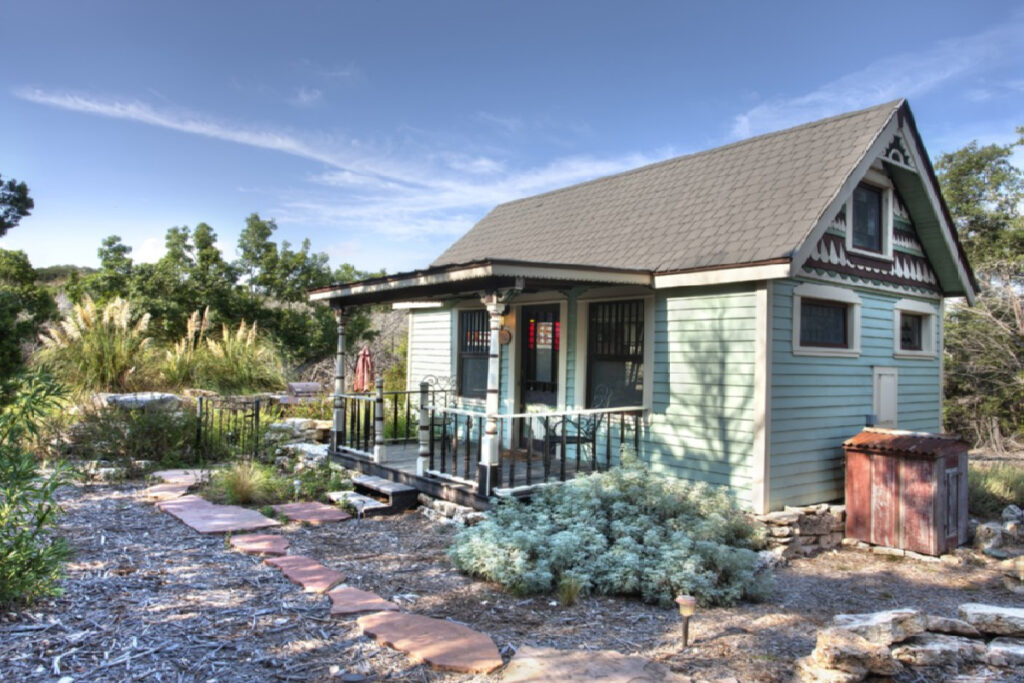
The Cost of Building a Tiny House in Virginia: What to Expect
Building a tiny house in Virginia can be an exciting and cost-effective housing option. However, it’s essential to consider various factors that can influence the overall cost of constructing your dream tiny home.
Materials
The choice of materials plays a significant role in determining the cost of building a tiny house. Opting for high-end or eco-friendly materials may result in higher expenses.
On the other hand, using reclaimed or repurposed materials can help reduce costs while adding character to your tiny home. It’s crucial to strike a balance between quality and affordability when selecting materials.
Labor
Labor costs are another important consideration. Hiring professionals such as builders, carpenters, and electricians will contribute to the overall expense.
The complexity of your design and customization requirements can also impact labor costs.
If you have DIY skills or are willing to learn, taking on some tasks yourself can help cut down on labor expenses.
Permits and Regulations
Before embarking on your tiny house journey, familiarize yourself with Virginia’s building codes and regulations.
Obtaining permits and meeting legal requirements may involve additional expenses.
It’s essential to factor these costs into your budget from the outset to avoid any surprises along the way.
Utilities and Off-Grid Options
Considering how you plan to power your tiny house is crucial when estimating costs.
Connecting your home to existing utilities like electricity, water, and sewage systems might require additional fees for installation or connection charges.
Alternatively, exploring off-grid options such as solar panels or composting toilets could provide long-term savings by reducing utility bills.
Average Expenses Involved in Building a Tiny House in Virginia
While the cost of building a tiny house varies depending on individual preferences and circumstances, it’s helpful to have an idea of average expenses associated with this endeavor in Virginia.
Materials: $10,000 – $30,000
The cost of materials for a tiny house typically ranges from $10,000 to $30,000. This estimate includes essential components such as lumber, insulation, roofing materials, windows, and doors.
However, keep in mind that the final cost will depend on the size and complexity of your design choices.
Labor: $5,000 – $20,000
Labor costs can vary significantly based on factors such as the level of customization and whether you choose to hire professionals or take a DIY approach.
Hiring contractors for specific tasks like plumbing or electrical work may incur additional expenses. On average, labor costs for building a tiny house in Virginia range from $5,000 to $20,000.
Permits and Regulations: Varies
Obtaining permits and meeting legal requirements is crucial when building a tiny house. Permit fees can vary depending on the location within Virginia and the complexity of your project.
It’s advisable to consult with local authorities or a professional who is familiar with Virginia’s regulations to get an accurate estimate of these costs.
Utilities and Off-Grid Options: Varies
Connecting your tiny house to existing utilities can involve upfront costs for installation or connection fees. The price will depend on factors such as distance from utility hookups and accessibility.
If you choose off-grid options like solar panels or composting toilets, initial investment costs should be considered alongside long-term savings potential.
Cost-Saving Measures and Budgeting Tips for Building a Tiny House in Virginia
Building a tiny house doesn’t have to break the bank. Here are some cost-saving measures and budgeting tips specific to constructing your dream home in Virginia:
-
Research Local Suppliers: Look for local suppliers who offer competitive prices on building materials. Buying locally not only supports the community but can also help reduce transportation costs.
-
Consider Pre-Owned Materials: Explore salvage yards, online marketplaces, or local classifieds for pre-owned materials that are still in good condition. Reusing materials not only saves money but also adds a unique touch to your tiny home.
-
DIY Where Possible
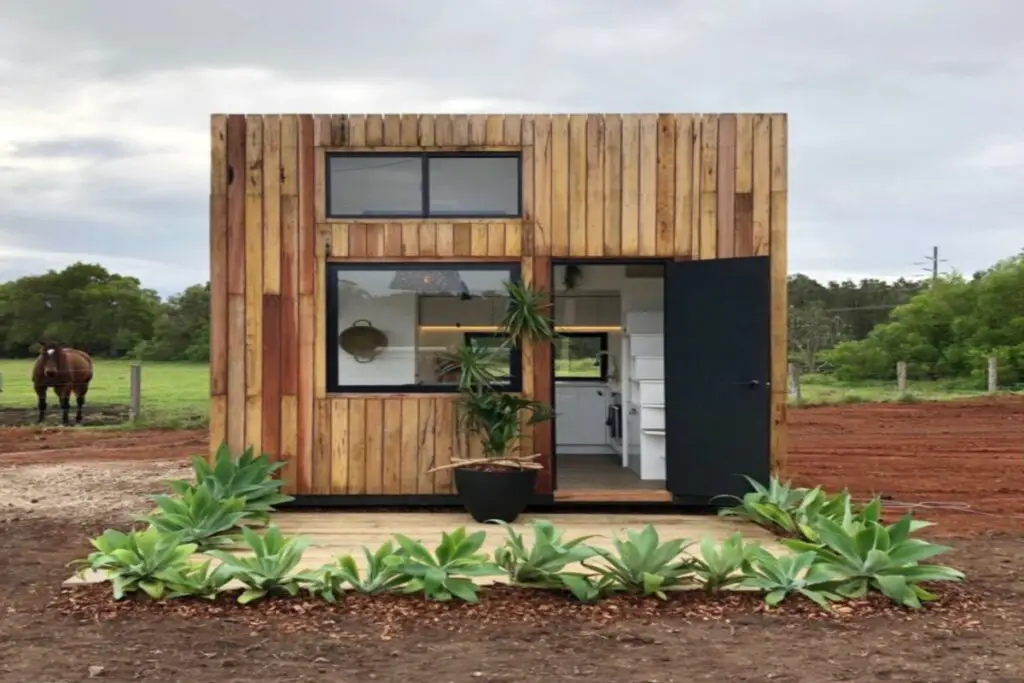
Kaufman Trailers Nationwide: A Resource for Tiny Home Builders
Looking to build your dream tiny home? Look no further than Kaufman Trailers, the nationwide resource for individuals like you who are venturing into the world of tiny house living.
With their expertise and range of services, Kaufman Trailers is here to make your tiny home dreams a reality.
Customized and Delivered Trailers for Tiny Houses
One of the key ways in which Kaufman Trailers can assist you is by providing customized trailers suitable for tiny houses.
They understand that every tiny home builder has unique requirements, so they offer a wide variety of trailer options to choose from.
Whether you need a specific size, weight capacity, or design features, Kaufman Trailers has got you covered.
Their team of experts will work closely with you to understand your vision and ensure that the trailer meets all your specifications.
From selecting the right materials to incorporating special features such as reinforced frames or adjustable heights, they will go above and beyond to deliver a trailer tailored specifically for your tiny home project.
Once your custom trailer is ready, Kaufman Trailers takes care of the logistics too. They provide delivery services across the nation, ensuring that your trailer reaches you safely and on time.
This saves you the hassle of arranging transportation yourself and gives you peace of mind knowing that professionals are handling this crucial aspect of your tiny house construction.
Additional Services Catering Specifically to Tiny Home Builders
Apart from providing top-notch trailers, Kaufman Trailers offers additional services that cater specifically to the needs of tiny home builders.
These services can greatly simplify your building process and enhance your overall experience.
Are you planning on placing your tiny home in a campground or an RV park?
Kaufman Trailers can guide you through any legal requirements or restrictions related to transporting and parking your tiny house in these locations.
Their expertise in local regulations can save you from potential headaches and ensure that you are in compliance with all relevant laws.
Furthermore, Kaufman Trailers understands that every tiny home builder has unique needs. They offer a range of optional features and add-ons to enhance the functionality and comfort of your tiny house.
From solar panels to off-grid toilets, they have options to suit various preferences. These additional services make Kaufman Trailers a one-stop-shop for all your tiny home building needs.
Get in Touch with Kaufman Trailers
Ready to take the next step towards building your dream tiny home? Contact Kaufman Trailers today to explore how they can assist you in making your vision come true.
Whether you’re just starting out or already have plans in motion, the knowledgeable team at Kaufman Trailers is here to support you throughout your tiny home building journey. Don’t miss out on this invaluable resource – reach out to them today!
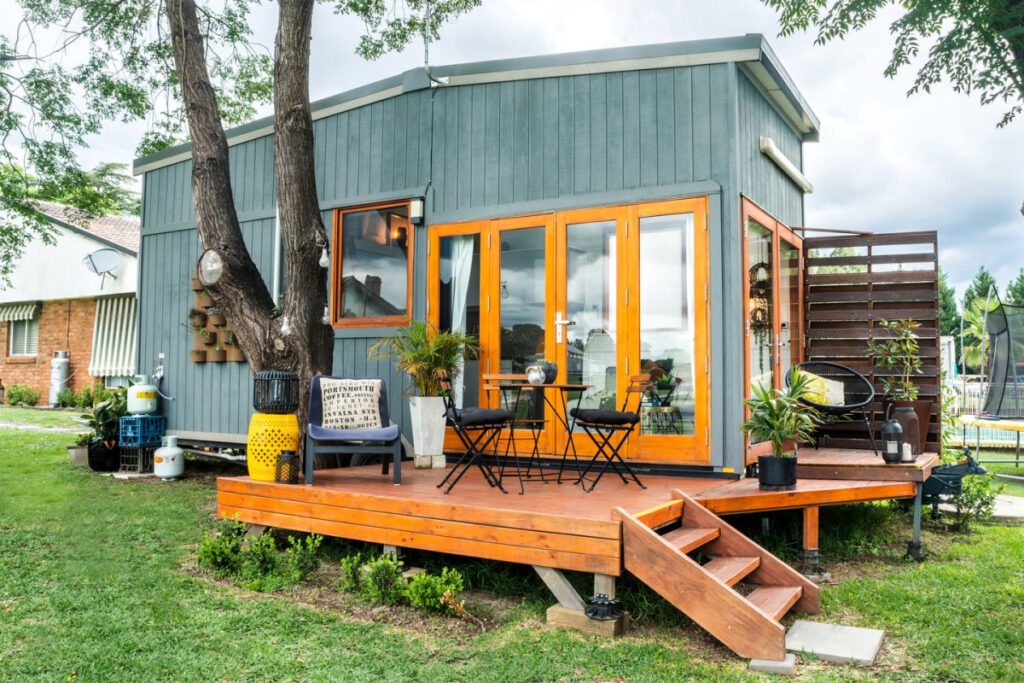
Navigating Zoning and Building Codes: We Found Land! Now What?
So, you’ve found the perfect piece of land in Virginia to build your dream tiny house. Congratulations!
But before you start hammering nails and painting walls, it’s crucial to understand the zoning regulations and building codes that apply to your specific area.
These rules can vary from county to county, so conducting thorough research is essential.
Zoning regulations determine how land can be used within different areas. They outline whether a property can be residential, commercial, or mixed-use.Zoning laws often classify them as either permanent dwellings or temporary structures like RVs.
It’s important to identify which category your tiny house falls into because this will impact where you can park or place it.
Building codes, on the other hand, provide guidelines for construction standards and safety measures.
These codes ensure that buildings are structurally sound and meet certain requirements for electrical systems, plumbing, insulation, etc.
Familiarizing yourself with these codes will help you design and build a safe and compliant tiny house.
The Impact of Regulations on Tiny House Placement
Once you’ve familiarized yourself with the zoning regulations and building codes in your area, it’s time to consider how these rules may impact the placement of your tiny house on your chosen plot of land.
-
Minimum Lot Size: Some areas may have minimum lot size requirements that dictate the smallest size of land needed for a dwelling.
-
Make sure your chosen piece of land meets these criteria before proceeding.
-
Setback Requirements: Setbacks refer to the distance between structures and property lines or other buildings. Zoning regulations often specify minimum setback distances for front yards, side yards, and backyards.
-
Ensure that there is enough space on your property to comply with these setbacks when planning where to place your tiny house.
-
Parking Regulations: Zoning regulations may also dictate parking requirements for residential properties.
-
Consider whether you have enough space on your land to accommodate the necessary number of parking spots for your tiny house.
-
Utilities and Services: Check if your chosen area has access to utilities such as water, electricity, and sewage systems.
-
If not, you’ll need to explore alternative options like off-grid living or installing self-sustaining systems.
Consulting Local Authorities and Conducting Thorough Research
Navigating the complexities of zoning regulations and building codes can be overwhelming, but it’s crucial to do your due diligence before embarking on any construction project. Here are some tips to help you along the way:
-
Contact Local Planning Departments: Reach out to the planning departments or zoning offices in the county where your land is located.
-
They will provide valuable information regarding specific zoning regulations, building codes, and any permits required for constructing a tiny house.
-
Engage with Builders and Tiny House Communities: Connect with local builders who specialize in tiny houses or join online communities of tiny house enthusiasts in Virginia.
-
These individuals can share their experiences navigating zoning laws and building codes in the area, offering insights that may prove invaluable during your own journey.
-
Attend Workshops or Seminars: Look out for workshops or seminars hosted by experts in zoning regulations and building codes within Virginia.
-
These events often provide detailed guidance on how to navigate through legalities while constructing a tiny house.
-
Online Resources: Take advantage of online resources dedicated to helping people understand zoning regulations and building codes specific to Virginia.
-
Websites like [insert website name] offer comprehensive guides tailored specifically for those interested in tiny house living within the state.
Remember, each county in Virginia may have its own unique set of rulesSo it’s essential not to rely solely on general information but rather consult local authorities directly.
Navigating zoning and building codes may seem like a daunting task, but with careful research, consultation, and adherence to regulations, you can successfully build your tiny house in Virginia.
So roll up your sleeves, grab your toolbox, and let your tiny house dreams become a reality!
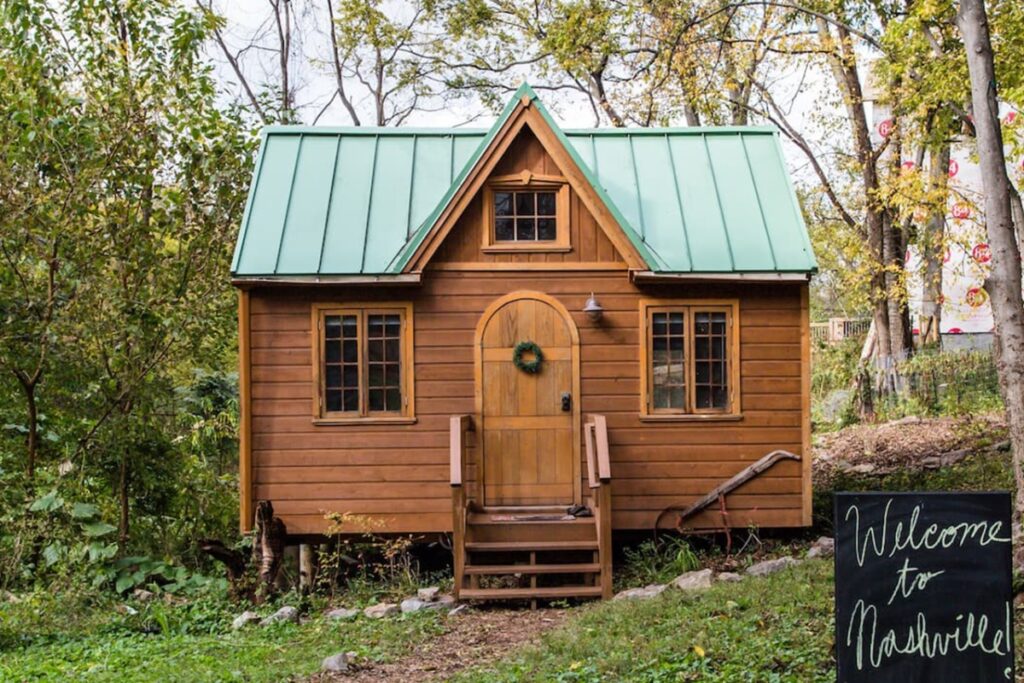
Understanding Norfolk’s Tiny House Building Codes and More:
Norfolk, Virginia is a city that has its own specific regulations. If you’re considering embarking on the exciting journey of constructing your very own tiny home in Norfolk, it’s important to understand the local building codes and requirements that apply.
These regulations are put in place to ensure the safety and well-being of residents while also maintaining the character and integrity of the community.
One of the first things you’ll need to familiarize yourself with is the residential code. The residential code outlines various standards for buildings within residential areas, including those for size, height limitations, foundation requirements, and more.
It’s crucial to adhere to these guidelines to avoid any potential legal issues or setbacks during your project.
In addition to the residential code, there may be other specific ordinances or zoning regulations that apply within Norfolk.
For instance, certain neighborhoods may have restrictions on where tiny houses can be located or how they should blend in with existing structures.
It’s essential to research these additional considerations before starting your build to ensure compliance with all relevant laws.
Explanation of key regulations, permits, and requirements specific to building a tiny home in Norfolk
To begin your journey towards constructing a tiny house in Norfolk, you’ll need to obtain the necessary permits and approvals from local authorities.
This typically involves submitting detailed plans and specifications for your proposed structure along with any required fees.
One key regulation you’ll encounter is related to minimum square footage requirements for habitable dwellings.
While traditional homes often have minimum size restrictions imposed by local codes or zoning laws, one of the appeals of a tiny house is its compact size.
However, this doesn’t mean you can simply build a structure without meeting any minimum standards.
Norfolk’s regulations may specify a minimum square footage threshold that your tiny house must meet to be considered a legal dwelling.
Another important consideration is the foundation of your tiny home. Norfolk’s building codes may outline specific requirements for foundations, such as the use of permanent structures like concrete slabs or footings.
These regulations are in place to ensure stability and safety, so it’s crucial to comply with them during the construction process.
Plumbing and electrical systems in your tiny house must meet certain standards set by the city.
This includes proper installation methods, adherence to safety codes, and obtaining necessary permits for any work involving these systems.
It’s essential to consult with licensed professionals who are well-versed in local regulations to ensure compliance with all applicable requirements.
Discussion on any additional considerations or restrictions that may apply within this particular jurisdiction
While Norfolk has its own set of regulations for tiny houses, it’s important to note that there may be additional considerations or restrictions depending on the specific location within the city.
Neighborhood associations or historic districts might have their own guidelines regarding architectural style, materials used, or even color schemes.
Furthermore, setbacks and lot coverage requirements can vary from one area to another within Norfolk.
Setbacks refer to the minimum distance you must maintain between your tiny house and property boundaries or neighboring structures.
Lot coverage refers to the maximum percentage of your lot that can be occupied by buildings or impervious surfaces like driveways or patios.
These factors play a significant role in determining where and how you can build your tiny house within Norfolk.
To navigate these potential hurdles successfully, it is highly recommended that you consult with local authorities and professionals familiar with Norfolk’s unique regulations.
They can guide you through any additional considerations specific to your desired location within the city.
Providing contact information or resources for readers interested in exploring Norfolk’s tiny house regulations further
For those seeking more detailed information about building a tiny house in Norfolk, it’s always best to reach out to the relevant local authorities.
The Department of Planning and Community Development, Zoning Division, or Building Permits Office can provide you with accurate and up-to-date information regarding regulations, permits, and requirements specific to your project.
Online resources such as the official Norfolk city website may offer valuable insights into the tiny house building process within the jurisdiction. These resources often include guides, FAQs, and contact information for further assistance.
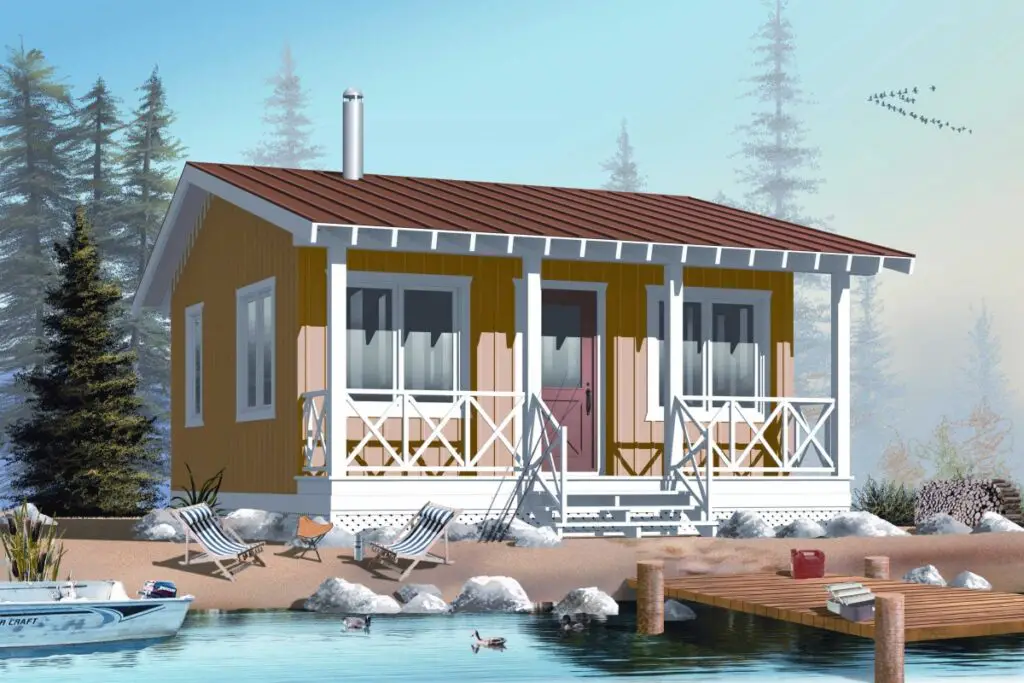
Navigating Virginia’s Complex Landscape of Tiny House Laws
Throughout this blog post, we have delved into the intricate web of laws and regulations that govern tiny houses in Virginia.
From state laws to local ordinances, there are several factors to consider when embarking on a tiny house project in the state.
One key aspect to be aware of is that Virginia does not have specific laws addressing tiny houses. Instead, they are typically classified under existing housing or zoning regulations.
This means that depending on where you plan to build or park your tiny house, you may need to comply with different rules and requirements.
For instance, if you’re considering placing your tiny house in Virginia Beach, it’s important to note that accessory dwelling units (ADUs) are permitted within certain guidelines.
However, there may be restrictions on size, parking requirements, and other considerations. On the other hand, in counties like Augusta or Staunton County, regulations might differ significantly.
Emphasis on the complexity and nuances involved in navigating Virginia’s legal landscape for tiny houses
Navigating Virginia’s legal landscape for tiny houses can be a complex endeavor due to the lack of specific legislation tailored to these dwellings.
The absence of clear-cut guidelines often leads individuals down a confusing path as they try to determine how their tiny house fits within existing frameworks.
It’s crucial to understand that while some states have embraced tiny houses and established comprehensive regulations for them, others like Virginia still rely on broader housing or zoning codes.
This ambiguity can make it challenging for prospective homeowners who wish to live in a smaller space.
To successfully navigate this complexity, it is essential to consult professionals familiar with local building codes and zoning regulations.
Architects and lawyers experienced in working with alternative housing options can provide valuable guidance throughout the process.
By seeking expert advice early on and conducting thorough research yourself, you can ensure compliance with the applicable laws and regulations.
Encouragement for readers to seek professional advice and conduct thorough research before embarking on a tiny house project in Virginia
Embarking on a tiny house project in Virginia requires careful planning, extensive research, and professional guidance.
It’s crucial not to underestimate the importance of seeking expert advice before diving headfirst into this endeavor.
While it may be tempting to rely solely on online resources or anecdotal information, consulting professionals who specialize in tiny houses can save you from potential legal pitfalls down the road.
They possess the knowledge and experience necessary to navigate the complex landscape of Virginia’s housing laws.
Furthermore, conducting thorough research is vital. Familiarize yourself with local zoning ordinances and building codes specific to your desired location.
Reach out to local authorities or planning departments for clarification on any uncertainties you may have.
By investing time in understanding the legal requirements upfront, you can avoid costly mistakes and ensure a smoother journey towards realizing your tiny house dreams.
Final thoughts on the potential future developments or changes to be aware of regarding tiny house laws in the state
As with any area of legislation, it’s important to stay informed about potential future developments or changes that could impact tiny house living in Virginia.
While there are no guarantees, keeping an eye on emerging trends and legislative discussions can give you insights into what might lie ahead.
Advocacy groups dedicated to promoting alternative housing options often play an instrumental role in pushing for legislative changes.
Stay connected with these organizations to stay updated on any progress made towards establishing clearer regulations for tiny houses in Virginia.
Keep an ear out for any proposed bills or initiatives at both state and local levels that aim to address the unique challenges faced by those interested in living in smaller dwellings.
By staying informed and actively participating in relevant conversations, you can contribute towards shaping future legislation that better accommodates tiny house living within the state.
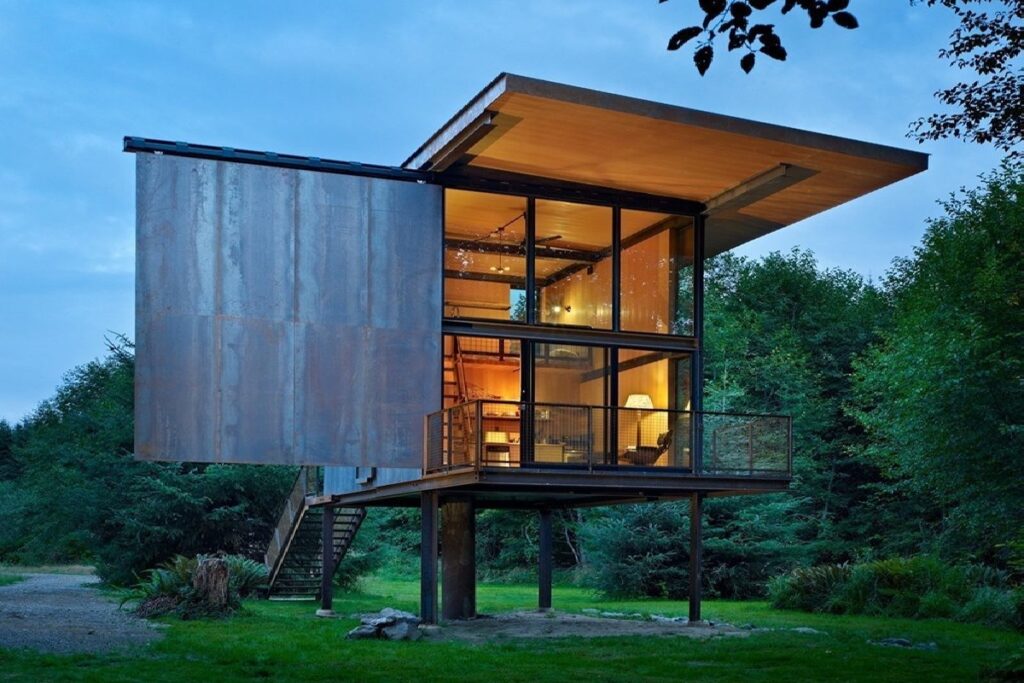
Conclusion
Navigating the complex landscape of tiny house laws in Virginia can be a daunting task.
However, with a clear understanding of the state’s regulations and some careful planning, you can successfully pursue your dream of living in a tiny house. Let’s summarize what we’ve learned:
-
Are Tiny Houses Legal in Virginia? Exploring the State’s Laws: While there is no specific legislation addressing tiny houses in Virginia, they can still be legally established as long as they comply with existing building codes and zoning regulations.
-
Understanding the Minimum Square Footage for a House in Virginia: Virginia does not have a minimum square footage requirement for houses, which provides flexibility for those interested in building or living in tiny homes.
-
Putting Your Tiny Home on a Trailer: Can You Put a Tiny House on Your Property in Virginia? Where Can You Put It?
-
Placing your tiny home on wheels allows for more freedom. However, you must ensure that it meets all necessary safety standards and zoning requirements.
-
Bypassing Virginia’s Tiny Home Laws: How to Get Around Them: While it is important to adhere to the laws and regulations surrounding tiny houses, there may be alternative options available such as joining an intentional community or exploring other housing alternatives that align with local ordinances.
-
Finding Tiny House Trailer Dealers in Virginia: If you are considering building a tiny home on wheels, there are reputable trailer dealers in Virginia who specialize in providing suitable trailers for this purpose.
-
Building a Tiny House in Virginia: Companies to Consider: Several companies within the state offer services specifically tailored to building custom tiny homes, ensuring compliance with local codes while meeting your unique needs and preferences.
-
The Cost of Building a Tiny House in Virginia: What to Expect: The cost of building a tiny house varies depending on factors such as size, materials, and customization.
-
It is important to carefully budget and consider all expenses involved in the construction process.
-
Kaufman Trailers Nationwide: A Resource for Tiny Home Builders: Kaufman Trailers is a nationwide resource that offers a wide range of trailers suitable for tiny home builders.
-
They provide reliable options and can assist you in finding the right trailer for your project.
-
Navigating Zoning and Building Codes: We Found Land! Now What? Once you have found land to place your tiny house on, it is crucial to understand and comply with local zoning and building codes. This ensures a smooth transition into your new living situation.
-
Understanding Norfolk’s Tiny House Building Codes and More: If you are considering Norfolk as your destination for a tiny home, it is essential to familiarize yourself with the specific building codes and regulations set forth by the city.
In conclusion, while Virginia’s tiny house laws may present challenges, they also offer opportunities for those seeking an alternative lifestyle.
By understanding the regulations, exploring available resources, and planning diligently, you can successfully navigate the complex landscape of tiny house living in Virginia.
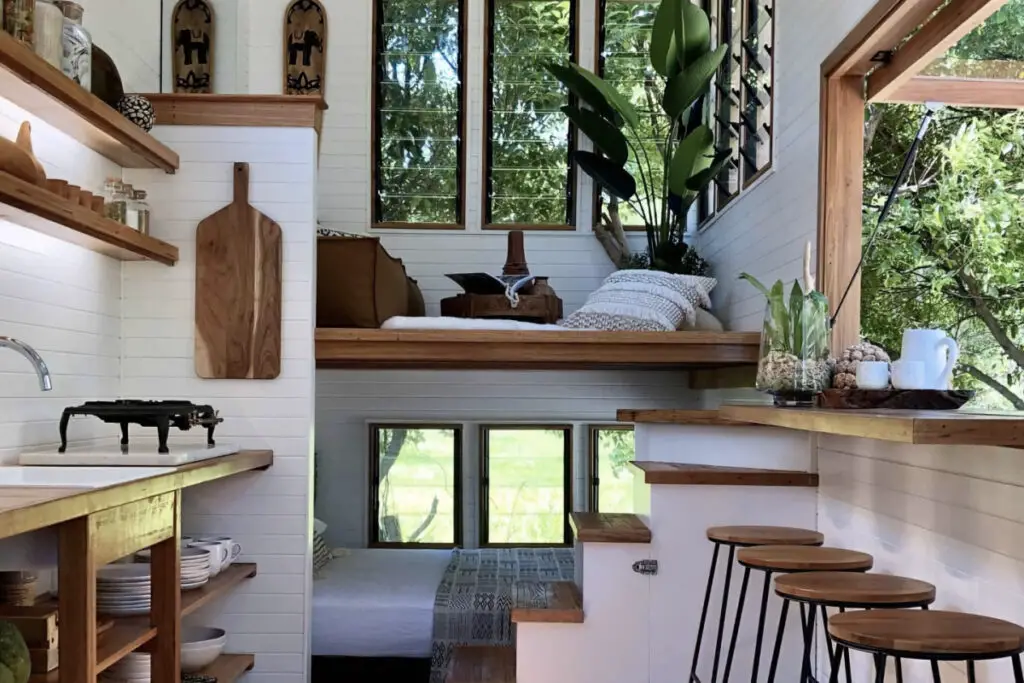
FAQs
1. Can I legally live in a tiny house in Virginia?
Yes, as long as your tiny house complies with existing building codes and zoning regulations in Virginia.
2. Is there a minimum square footage requirement for houses in Virginia?
No, Virginia does not have a minimum square footage requirement for houses.
3. Can I put my tiny house on wheels anywhere in Virginia?
You must ensure that your placement adheres to necessary safety standards and zoning requirements set by local authorities in Virginia.
4. Are there companies in Virginia that specialize in building custom tiny homes?
Yes, several companies within the state offer services specifically tailored to building custom tiny homes while meeting local codes.
5. How much does it cost to build a tiny house in Virginia?
The cost of building a tiny house in Virginia varies depending on factors such as size, materials, and customization. It is important to carefully budget and consider all expenses involved.


